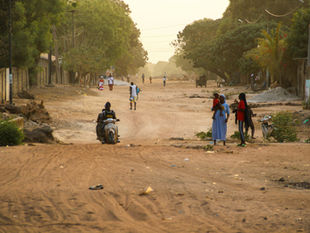.png)
LSESU WAR STUDIES SOCIETY
On November 26, five bodies bearing signs of torture were dumped outside the Autonomus University of Sinaloa, names have been numerated into an increasing death toll of 425 people since September 9. The arrest of Jaoquin “El Chapo” Guzman in February 2014 has triggered internal conflict within the large Sinaloa Cartel, splitting into four factions; Los Chapitos, La Mayiza, Aureliano Guzman-Loera and Rafael Caro-Quintero. The Sinaloa Cartel does not have a strict hierarchical style of governance but rather functions more as a board of directors, making it susceptible to internal power struggles.
Heads in Los Chapitos and La Mayiza, Joaquin Guzman Lopes and Ismael Zambada ‘El Mayo’ Garcia, have been arrested in El Paso, Texas. El Mayo had accused Guzman-Lopes of betraying him for a reduced sentence which sparked the violence from the power vacuum that peaked in September resulting in the intervention of state forces.
This comes during the contest between the Sinaloa Cartel and Cartel Jalisco Nueva Generación, the competition between the two organisations has security implications for Mexico, Latin America and the US. The linkages between cartels and groups within Latin America has increased weapon supplies to countries such as Columbia. The competition over the Panama Canal has made Ecuador an epicentre for cartel violence, demonstrated by an 800% increase in the homicide rate from 2018-2023. However, cartel expansion has not always come with violence, the two have acted as facilitators of negotiations between the National Liberation Army and Segunda Marquetalia.
Though excessive bloodshed is bad for business, it still seeps its way into Mexican and American society. A quadrupled increase in migration across the border into the US from 2022-2023 and change in reasoning for migration represent a security risk for both migrants and the US institutions. The change between the years for migration due to cartel violence has increased from 2-90%, when comparing the Kino and UN International Organisation for Migration surveys.
Former President Andres Manuel Lopez Obrador tried a different policy in the face of his predecessors called ‘Hugs, not Bullets’, focussing on social programmes; but this had led to an expansion of cartels during his term. However, current President Claudia Sheinbaum has sought to bolster intelligence and security forces to fight the cartel, despite a previous commitment to the ‘Hugs, not Bullets’ policy starting in December.
The recent decision comes under pressure from US President Donald Trump as cartels have been designated as terrorist groups under Executive Order. However, General Jesus Ojeda has stated that it is the cartels’ decision to stop fighting each other and that the decision is ‘not on us’, indicating a limited reach of policy. Trump’s decision to freeze aid would apply to the USAID that saw over $3 billion per annum directed towards anti-narcotic operations. In conjunction with pressure from Trump to address the cartel issue and President Sheinbaum’s adamance on not letting ‘the US invade our sovereignty’, there seems to be an unclear direction despite both nations taking a similar hard stance against the cartels.�






